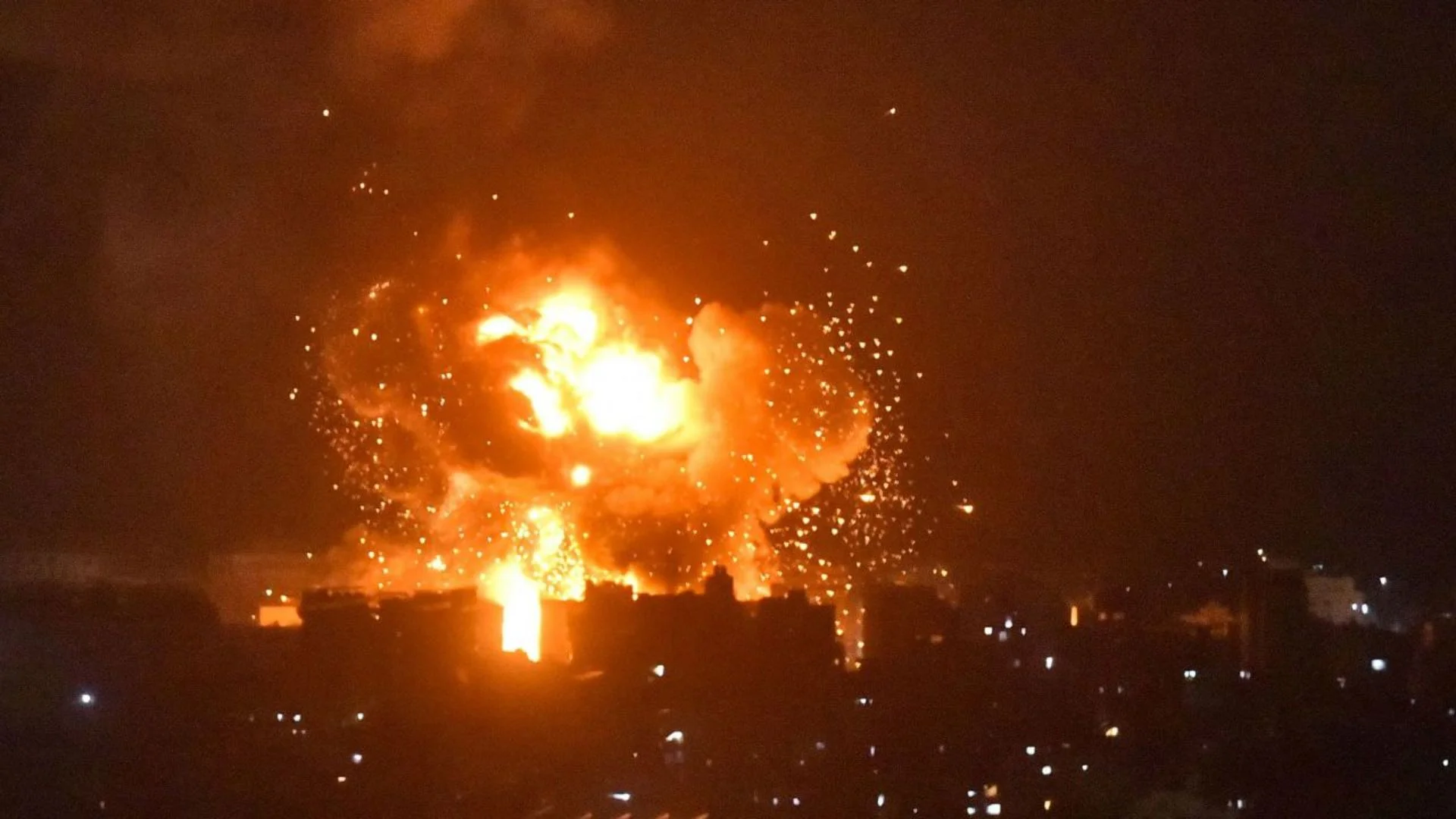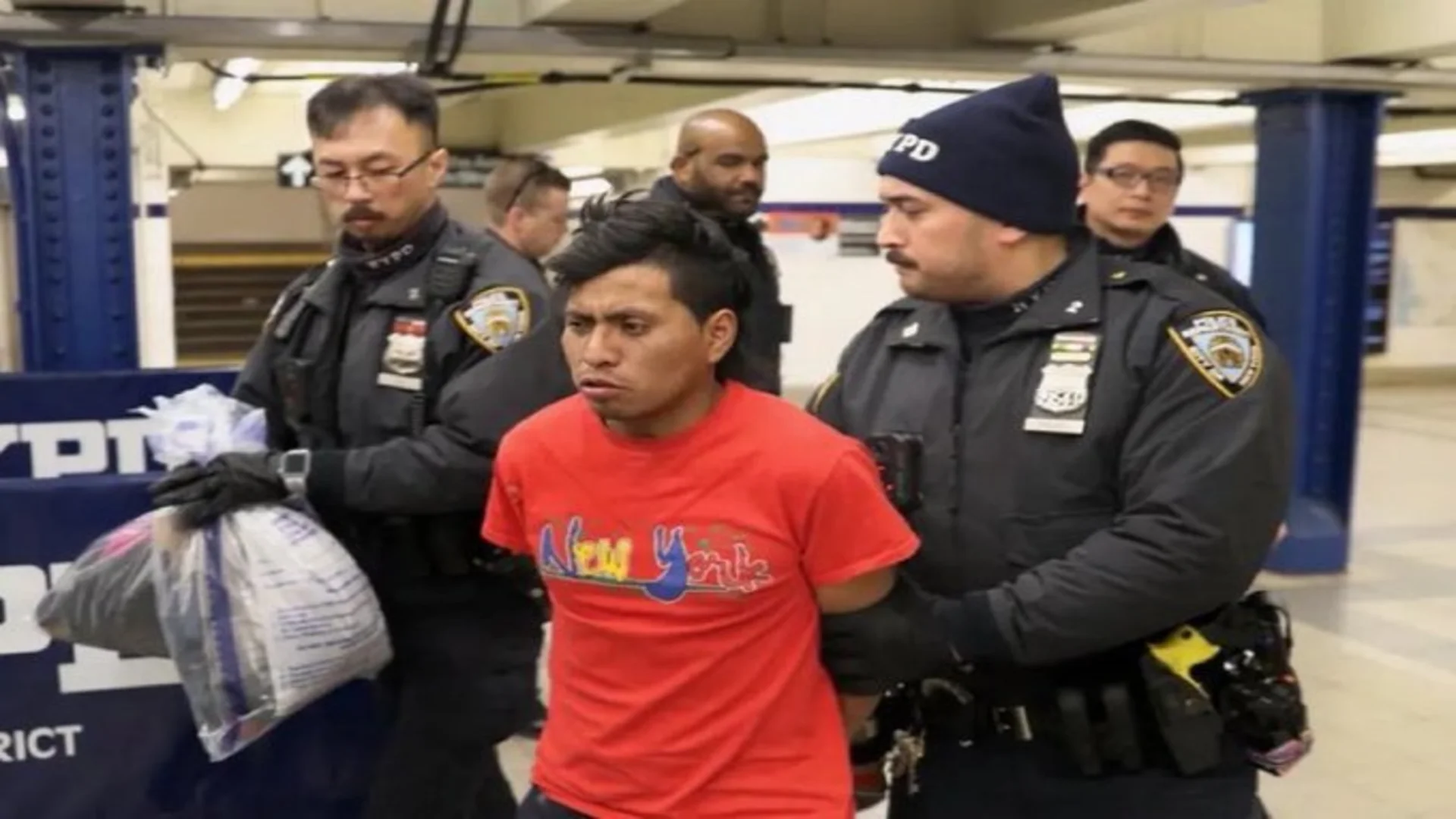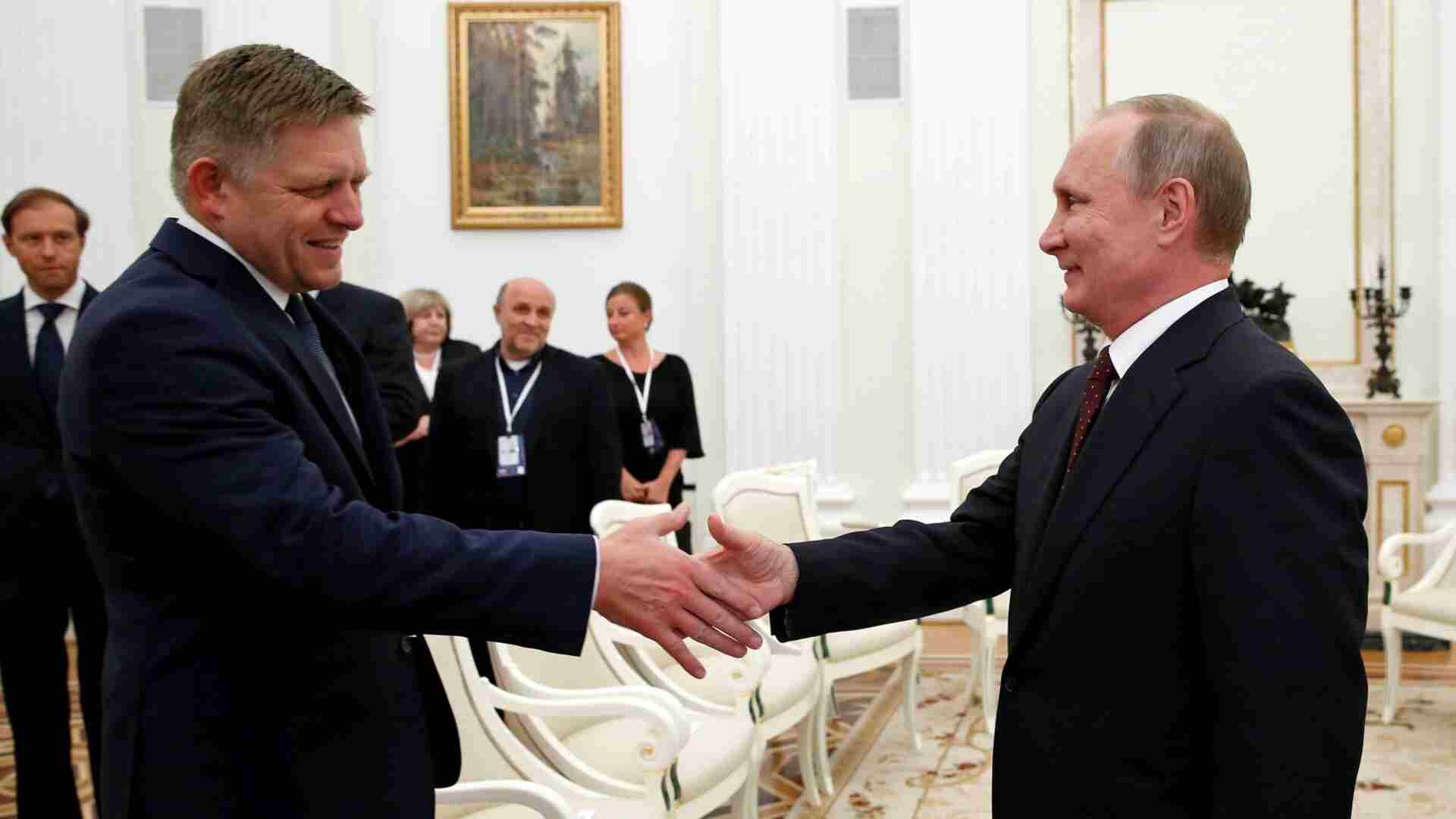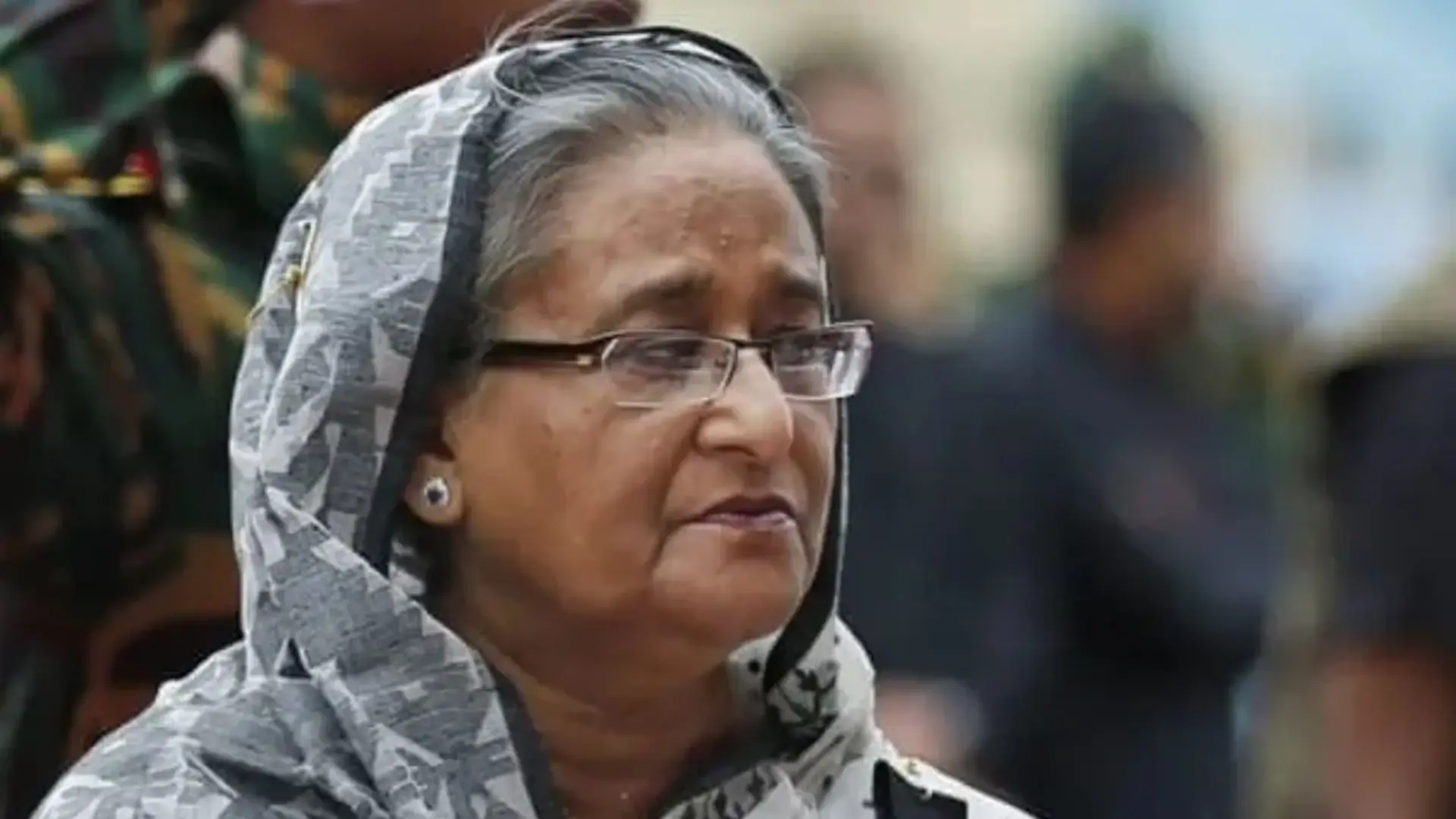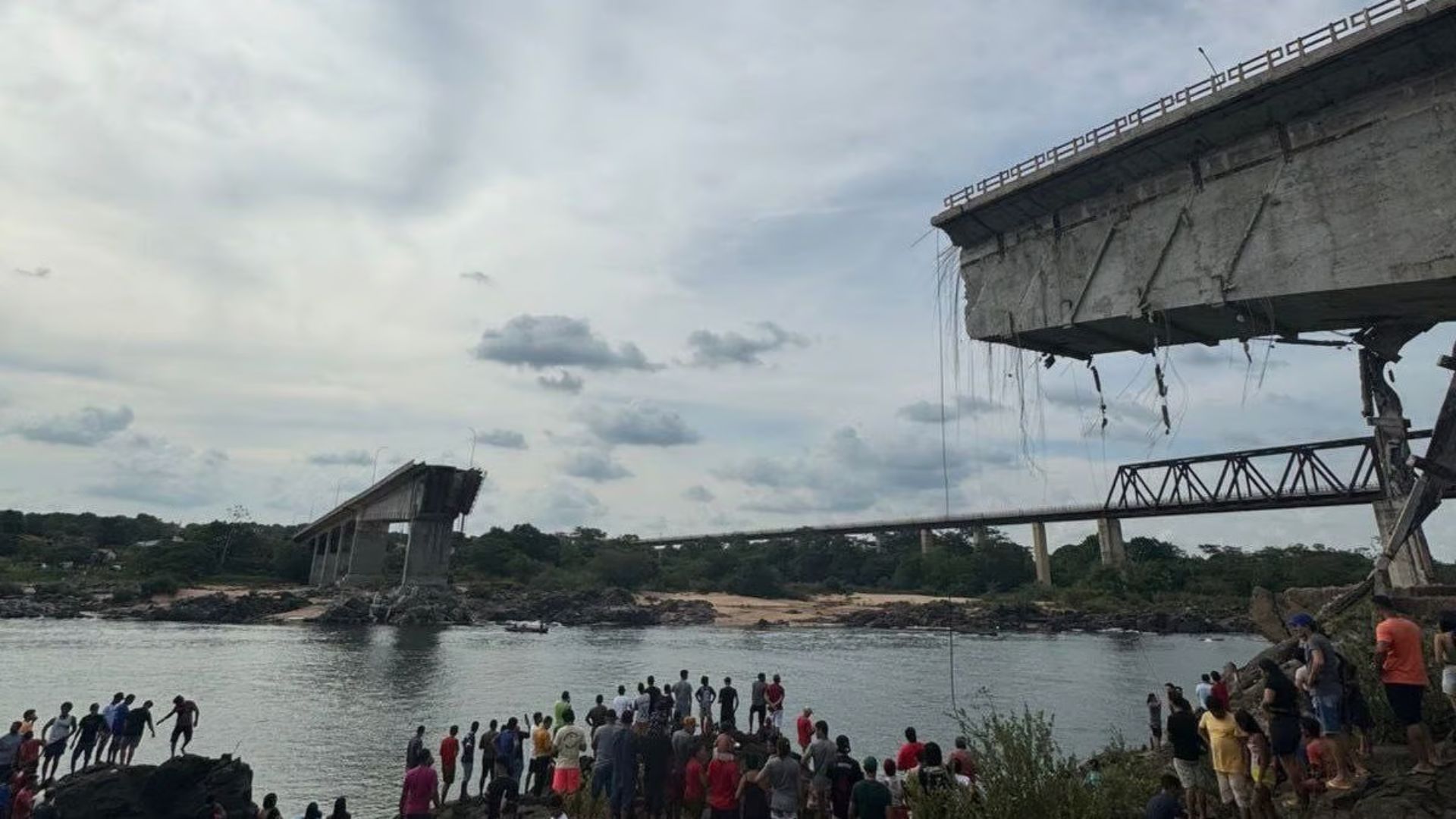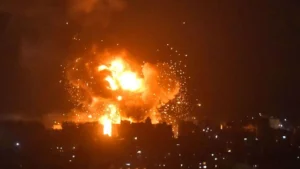Massive explosions shook Beirut on Sunday, marking the most violent night of attacks since Israel intensified its military operations against Lebanon on September 23. Israeli warplanes executed over 30 air raids on the southern suburbs, creating fireballs that illuminated the night sky and clouds of smoke visible across the city.
The assault follows a year of devastating conflict in Gaza, with Israel now turning its attention to Hezbollah, the Lebanon-based group allied with Hamas. Lebanon’s National News Agency reported that a Hezbollah stronghold in southern Beirut was among the targets, which included a petrol station and a hotel near Rafic Hariri International Airport. Casualty figures from the strikes are not yet available.
Israel’s military confirmed the strikes aimed at various weapons storage facilities and infrastructure, emphasizing efforts to minimize civilian harm.
Al Jazeera’s Ali Hashem, reporting from Beirut, described the strikes as unprecedented in intensity, stating, “It is becoming another Gaza with the way the Israeli strikes are hitting.” Explosions continued into Sunday morning, prompting thousands of residents to flee to Beirut’s city center to escape bombardments in their neighborhoods. Many sought shelter in public spaces, including parks and schools, as the Lebanese government struggled to respond to the crisis.
The overnight bombings occurred shortly after a security source revealed that Hezbollah had lost contact with a key leader, Hashem Safieddine, a potential successor to the group’s slain leader, Hassan Nasrallah. Safieddine, chairman of Hezbollah’s executive council and Nasrallah’s cousin, has not been heard from since an intense Israeli strike on September 27.
In retaliation, Hezbollah launched strikes against Israeli soldiers in northern Israel, reportedly forcing some troops to retreat. Israeli officials stated that at least nine soldiers had died in southern Lebanon amid the ongoing conflict.
The escalation also included a strike on the northern Lebanese city of Tripoli on Saturday, which killed Saeed Attallah Ali, a senior leader of Hamas’s armed wing, along with his wife and two daughters.

